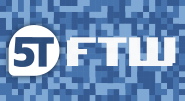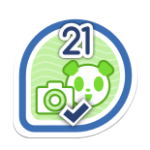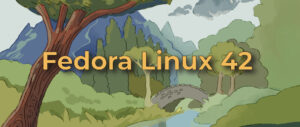Add your art to Fedora, LinuxFest Northwest, Fedora Regional Budgets, Fedora.next test plans, and Fedora Dockerfiles….

Fedora is a big project, and it’s hard to follow it all. This series highlights interesting happenings in five different areas every week. It isn’t comprehensive news coverage — just quick summaries with links to each. Here are the five things for May 6th, 2014:
Add Your Art to Fedora
Every Fedora release ships with a collection of non-default desktop wallpaper, provided by (and selected by !) the Fedora community. On his blog, Fedora Design Team member Sirko Kemter announces that the artwork submission period for Fedora 21 is now open. Entries must be licensed under a liberal open content license and meet some basic technical and content requirements. The deadline is August 16th, but it never hurts to start creating early.
!) the Fedora community. On his blog, Fedora Design Team member Sirko Kemter announces that the artwork submission period for Fedora 21 is now open. Entries must be licensed under a liberal open content license and meet some basic technical and content requirements. The deadline is August 16th, but it never hurts to start creating early.
Both submissions and voting are handled by Nuancier, a web application dedicated to the task. You can see last year’s results, too!
LinuxFest Northwest
The 15th annual LinuxFest Northwest was held last week in (as it always is) Bellingham, Washington. Fedora was well-represented, of course. Jeff Sandys provides a brief blog report on the event, with a title implying more to come. Also worth watching is Bryan Lunduke’s annual “Linux Sucks” report. Make sure to stick around for the second half — Fedora comes out rather well overall, despite the talk’s tongue-in-cheek title.
Fedora Regional Budgets
Fedora Ambassadors are the outreach arm of the project — volunteers who spread the word of our collective greatness. Often, this is through organizing and attending events, and of course that takes money for travel, lodging, swag, and so on. Curious how this breaks down? Jiří Eischmann (a member of FAmSCo, the Fedora Ambassadors Steering Committee) has a blog post reviewing the (just completed) Fiscal Year 2014 Regional Budgets.
Fedora.next QA Test Plans
Fedora’s Quality Assurance team has been working with the various new Fedora Working Groups (see this article series if you haven’t been following along) to create plans for testing the different products envisioned in the brave new world of Fedora 21 and beyond. At yesterday’s QA meeting, Adam Williamson, Ankur Sinha, and Mike Ruckman discussed draft plan documents for Server, Workstation, and Cloud, and Adam is planning to put the three together and come up with an idea of what overall test coverage looks like.
Sound interesting to you? Take a look at the Join QA wiki page, or if you’re especially interested in a particular area, the corresponding Special Interest Group.
Fedora Dockerfiles Collection
You’ve probably heard of Docker by now  — containers have gained huge traction as an attractive alternative to full virtualization, and Docker may be the buzziest container-related technology of all. It provides a simple command-line tool for fetching special images and launching them as application containers, where each gets a special view of the system where it appears to be the only thing running — the process is isolated from the rest of the system.
— containers have gained huge traction as an attractive alternative to full virtualization, and Docker may be the buzziest container-related technology of all. It provides a simple command-line tool for fetching special images and launching them as application containers, where each gets a special view of the system where it appears to be the only thing running — the process is isolated from the rest of the system.
Docker containers bring along their entire runtime, so each image is its own little Fedora (or, of course, other Linux system — CentOS or Ubuntu or whatever, if you want). And these images are created on top of a base image using a recipe called a Dockerfile. (It’s something like an RPM spec file or a kickstart script, if you’re familiar with those.) Fedora contributor Scott Collier maintains a collection of examples named, simply enough, fedora-dockerfiles, and this week he notes that there’s a new version. This contains examples including the Apache httpd webserver, PostgreSQL database, and many more… even a ready-to-go WordPress installation.
Scott also has quick instructions on building and running images from these Dockerfiles in an earlier blog post. It’s pretty simple, really — which is the appeal. Oh, and be aware that we are mostly talking about server applications here, not desktop apps (although containers are a big topic there too, and it’ll be interesting to see how the ideas come together).





Wantoo Sevin
Great summary. Thanks!